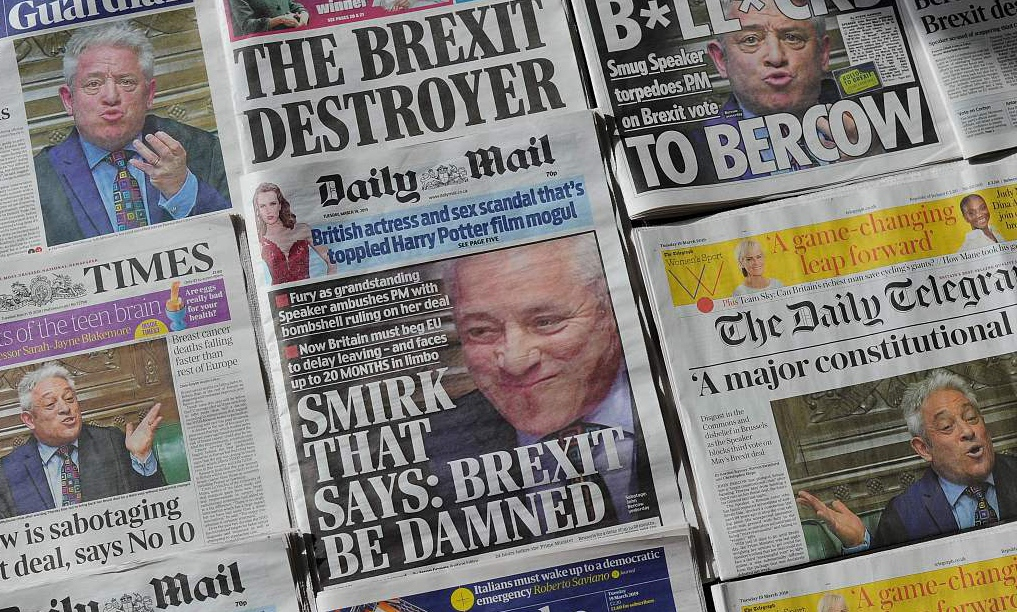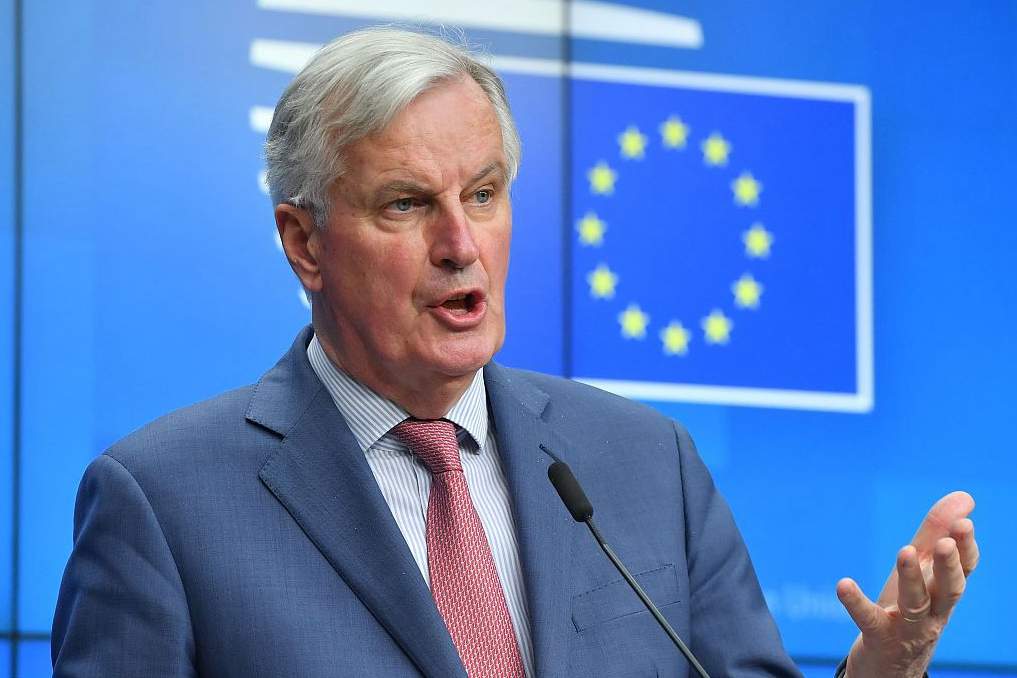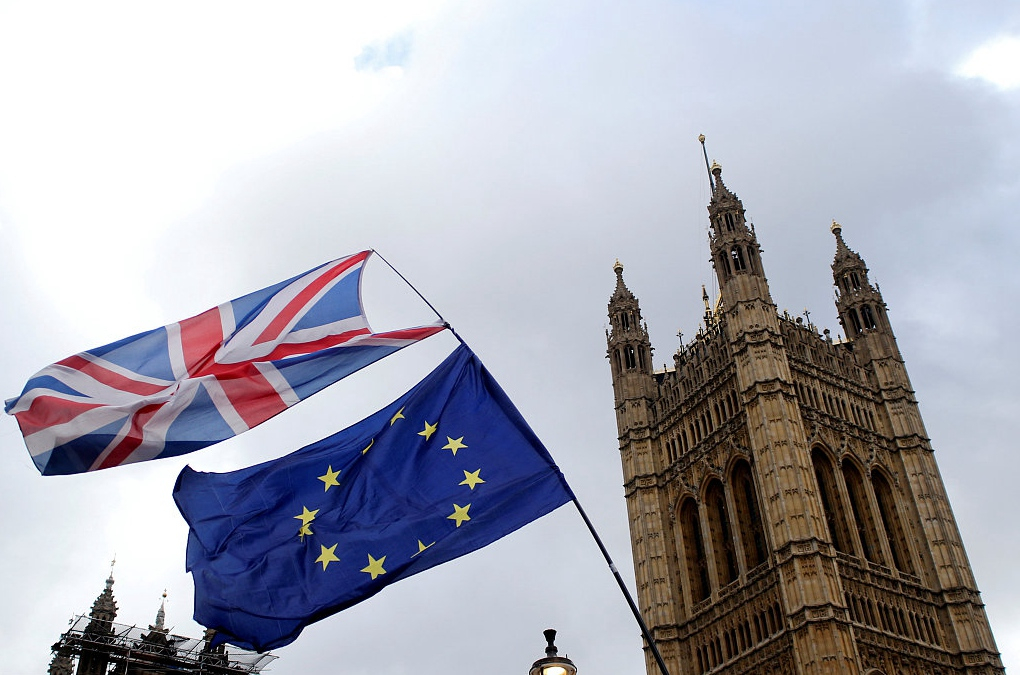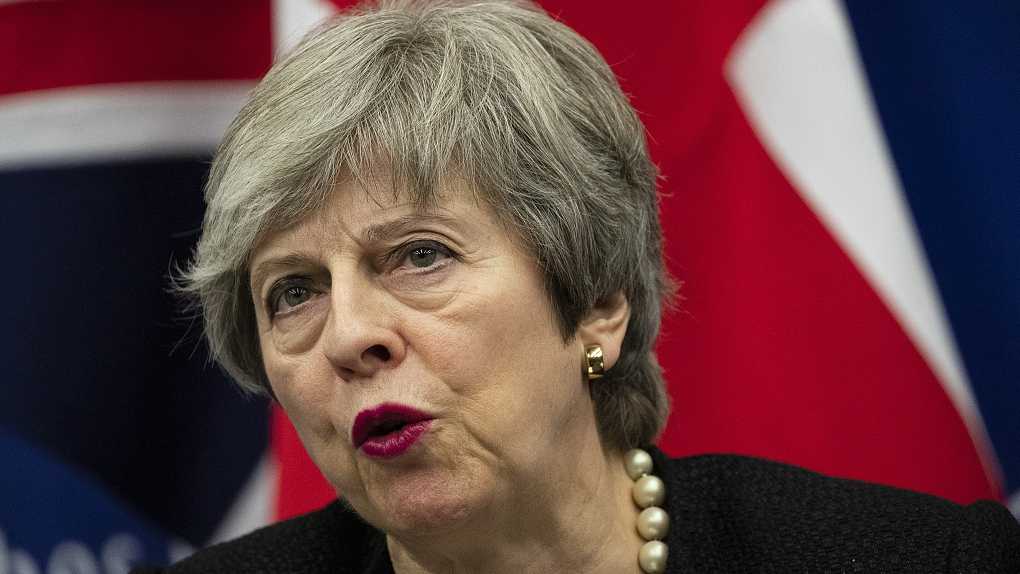British Prime Minister Theresa May is writing to the EU to formally ask for Brexit to be postponed, one ministerial source told the BBC while No. 10 Downing Street said no decision had been made.
The latest twist in May's attempts to take Britain out of the European Union came at the hands of House of Commons Speaker John Bercow, a controversial figure among pro-Brexit MPs, just nine days before the scheduled departure date.
Bercow announced on Monday – to the surprise of May's office – that the government would not be able to bring forward proposals for a vote in parliament this week unless the content was substantially different from those defeated twice before.

An arrangement of daily newspapers in London shows front pages reporting on the House of Commons Speaker John Bercow's ruling that a further Parliamentary "meaningful vote" on the government's Brexit deal would not be possible in its current form, March 19, 2019. /VCG Photo
An arrangement of daily newspapers in London shows front pages reporting on the House of Commons Speaker John Bercow's ruling that a further Parliamentary "meaningful vote" on the government's Brexit deal would not be possible in its current form, March 19, 2019. /VCG Photo
May's deal was crushed by 230 votes in January, and a slightly revised version went down by 149 on February 12, but the government had indicated the agreement would be put before MPs for a third time this week if there was a realistic chance of victory.
What is the EU saying?
Any long Brexit delay would pile on economic and political costs for the European Union, the bloc's chief negotiator Michel Barnier said on Tuesday, stressing that these would need to be weighed up carefully against potential benefits.
Barnier spoke ahead of an EU leaders' summit on Thursday and Friday where they could decide on postponing Brexit beyond the current date of March 29, should May request that.
"It is our duty to ask whether this extension would be useful. It would extend uncertainty and uncertainty costs. We cannot prolong uncertainty without having a good reason for it."
"EU leaders will need a concrete plan from the UK in order to be able to make an informed decision," Barnier added.

EU chief negotiator Michel Barnier addresses a press conference at the end of a general affairs council on Article 50 negotiations with the United Kingdom at the European Commission in Brussels, March 19, 2019. /VCG Photo
EU chief negotiator Michel Barnier addresses a press conference at the end of a general affairs council on Article 50 negotiations with the United Kingdom at the European Commission in Brussels, March 19, 2019. /VCG Photo
He said the other 27 national leaders would ask May whether delaying Brexit would increase the chances that her fractious parliament would ratify their stalled Brexit deal.
Barnier said the EU would assess what is best for itself.
"Extending uncertainty without a clear plan would add to the economic costs to our businesses but could also incur a political cost for the EU."
Close ties
The EU has pondered a Brexit delay as long as until the end of 2020 - when the bloc's current long-term budget ends - if London were to change May's approach and seek much closer ties with the bloc after leaving, hold a second referendum or elections.

Flags flutter outside the Houses of Parliament, ahead of a Brexit vote, in London, March 13, 2019./VCG Photo
Flags flutter outside the Houses of Parliament, ahead of a Brexit vote, in London, March 13, 2019./VCG Photo
Diplomats and officials in the bloc said, depending on what exactly May asks for, EU leaders could hold off on making a final call this week, helping May put pressure on her MPs to back her divorce deal at the third attempt before March 29.
Other options include a short postponement until the end of June, though the EU does not believe that would be enough to break the Brexit impasse in the United Kingdom and fears London would then ask for a further delay.
The bloc insists Britain would have to take part in European Parliament elections due on May 24-26 if it were still to be a member of the bloc beyond June 2, when the new chamber convenes.
But it worries about opening the way to legal challenges to the parliament's legitimacy should Britain eschew the vote but remain inside the EU longer. The EU must agree unanimously to any London request for a Brexit lag.
Source(s): Reuters





